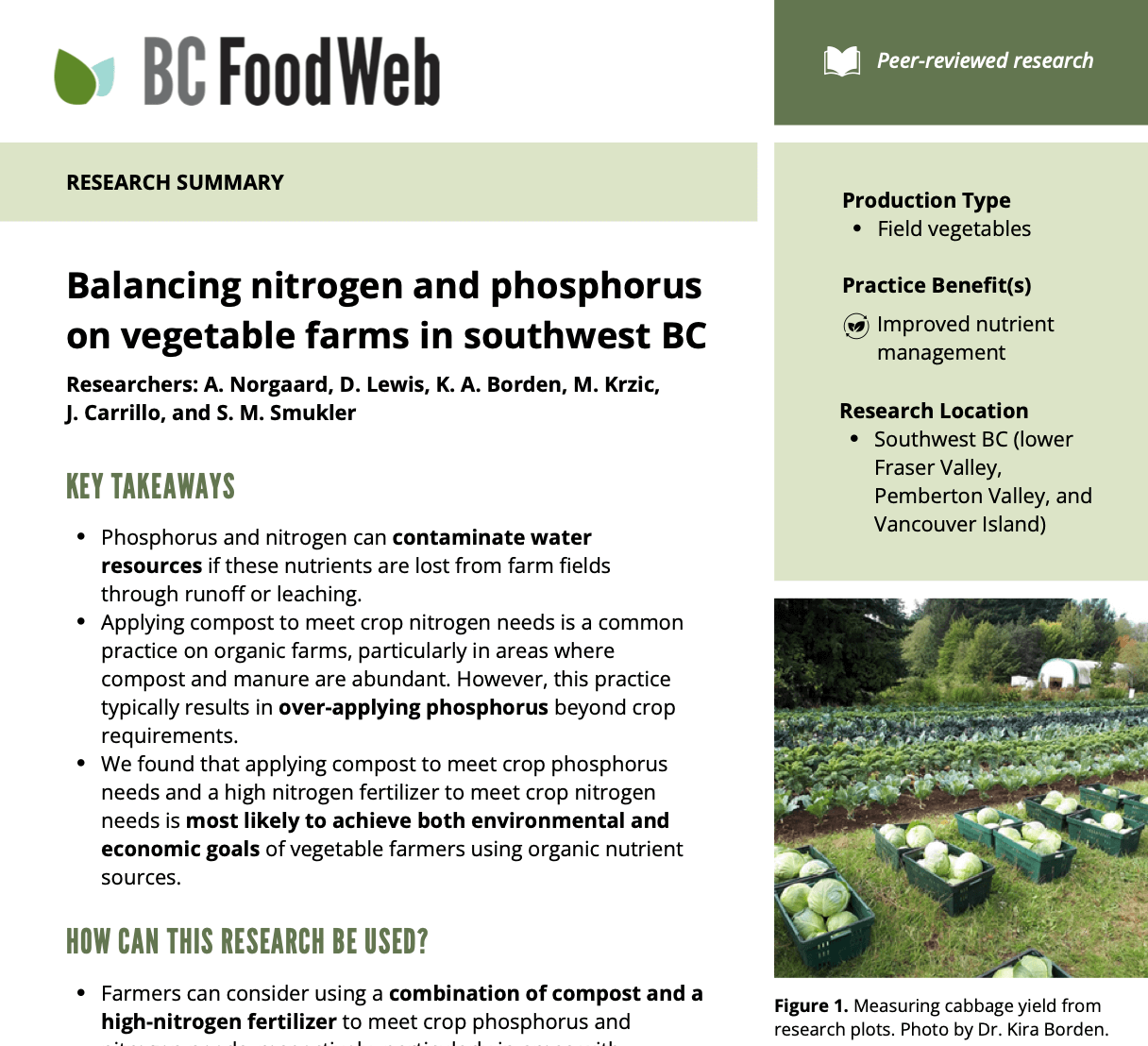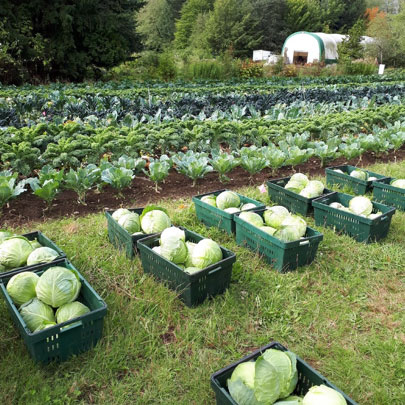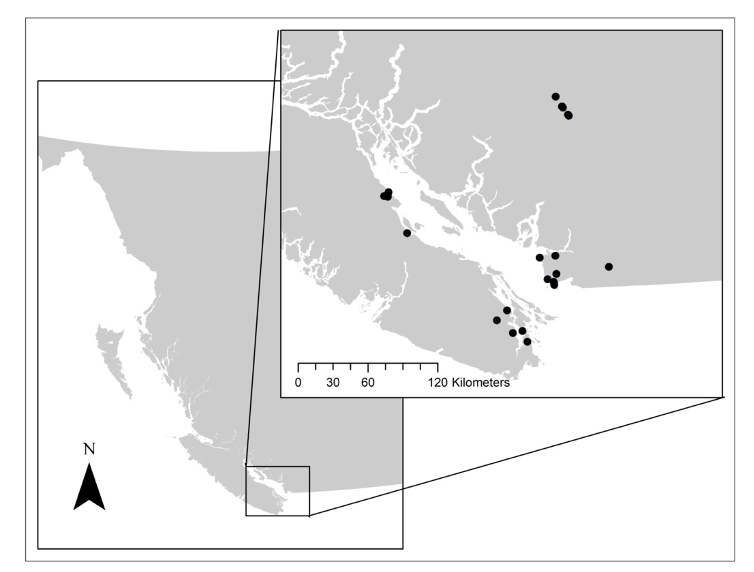Balancing nitrogen and phosphorus on vegetable farms in southwest BC
Introduction
About this Brief
This brief was prepared by Juliana Cao from the BC Food Web team with the help of Amy Norgaard and is based on the following scientific journal article:
Norgaard, A. E., Lewis, D., Borden, K. A., Krzic, M., Carillo, J, & Smukler, S. M. (2022). Trade-offs in organic nutrient management strategies across mixed vegetable farms in Southwest British Columbia. Frontiers in Sustainable Food Systems, 6. https://doi.org/10.3389/fsufs.2022.706271
Key Findings
- Phosphorus and nitrogen can contaminate water resources if these nutrients are lost from farm fields through runoff or leaching.
- Applying compost to meet crop nitrogen needs is a common practice on organic farms, particularly in areas where compost and manure are abundant. However, this practice typically results in over-applying phosphorus beyond crop requirements.
- We found that applying compost to meet crop phosphorus needs and a high nitrogen fertilizer to meet crop nitrogen needs is most likely to achieve both environmental and economic goals of vegetable farmers using organic nutrient sources.




